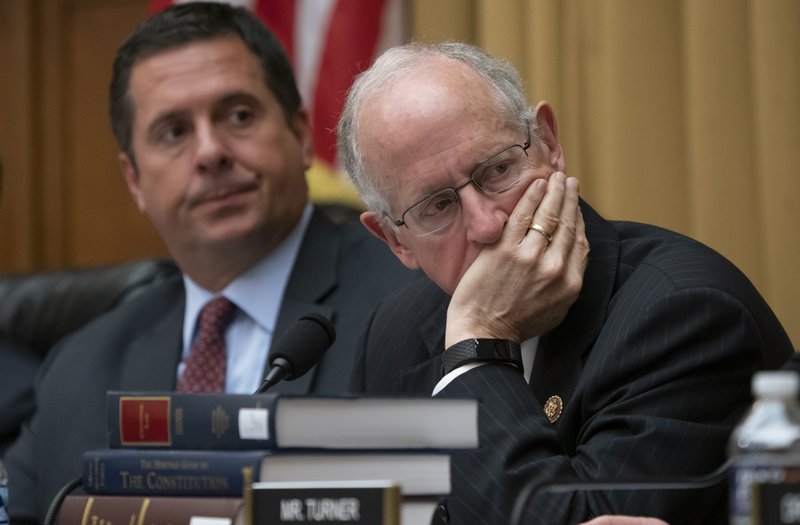WASHINGTON -- A ninth Republican has announced he'll retire from the House, adding to the GOP's challenge as it seeks to win back the majority in 2020.
Rep. Will Hurd, an ex-CIA undercover officer and the lone black Republican in the House, says he won't seek a third House term in next year's elections.
The San Antonio Republican's announcement came in a Thursday statement posted on his House Web page. He's the third Texas Republican to announce that he won't seek re-election to the House, joining Michael Conaway of Midland and Pete Olson of Sugar Land.
Hurd said he wants to work in the private sector toward solutions to "problems at the nexus between technology and national security."
Conaway, 71, in his announcement this week, pointed to his loss of a leadership role atop the House Agriculture Committee.
"There's a mood of tremendous frustration with the lack of accomplishment," Rep. Paul Mitchell, R-Mich., said in an interview this week, days after announcing that he's leaving after just two House terms. "Why run around like a crazy man when the best you can hope is maybe you'll see some change at the margins?"
Mitchell, 62, who said he originally intended to serve longer, blamed leaders of both parties for using the nation's problems "as a means to message for elections" instead of solving them.
He also expressed frustration with President Donald Trump's tweets last month telling four female lawmakers -- including his Michigan colleague, Rep. Rashida Tlaib -- to "go back" to their home countries, though all are American. The tweet was "below the behavior of leadership that will lead this country to a better place," Mitchell said.
Republicans say it can be demoralizing to be in the minority in the House, where the chamber's rules give the majority party almost unfettered control. That leaves them with little ability to accomplish much, even as they must continue the constant fundraising that consumes many lawmakers' hours.
"When you've been in the majority, it's no fun to be in the minority," said veteran Rep. Tom Cole, R-Okla.
But other Republicans in the Capitol and outside it -- several speaking on condition of anonymity to avoid alienating colleagues -- say the frustration runs deeper. They describe worries that they won't win back the majority in 2020, which would mean two more years of legislative futility.
"The White House isn't helping the atmosphere up to this point for these guys. They're having to answer every day for things they didn't say or do," said former Rep. Tom Davis, R-Va. "That's not a good place to be."
"People are beyond exhausted," said former Rep. Ryan Costello, R-Pa., who didn't seek re-election in 2018, citing frustrations with Trump. "You're not able to get your own message out. It's very difficult to have your own brand with this administration, it just is."
Michael McAdams, a spokesman for the National Republican Congressional Committee, said the retirements are "what happens this time of year." He said Republicans are "in a prime position to pick up seats and recapture the majority."
Rep. Martha Roby of Alabama, 43, like Michigan's Mitchell, is vacating a deeply red seat, while the retirement of Susan Brooks, 58, could put her Indiana seat at risk.
Reps. Rob Woodall of Georgia, 49, and Olson, 56, would have faced difficult races had they run for re-election. Even so, their departures are unhelpful for a party that must gain at least 18 seats to win the majority.
The last time a president ran for re-election and any party gained at least 18 House seats was 1964, when President Lyndon Johnson's landslide netted Democrats a 37-seat pickup.
Party control of the chamber hasn't changed during a presidential election since 1952, when Republican Dwight Eisenhower won the White House and majority Democrats lost the House.
Another retiring Republican, Alabama Rep. Bradley Byrne, 64, is running for Senate and leaves behind a solid Republican district.
Though loss of clout was why Conaway said he was leaving, he said at a news conference in Midland, Texas, "The partisanship has become too intense. It's gotten to be where it's a lot more important about the jersey than the issue."
Information for this article was contributed by staff members of The Associated Press.
A Section on 08/02/2019
